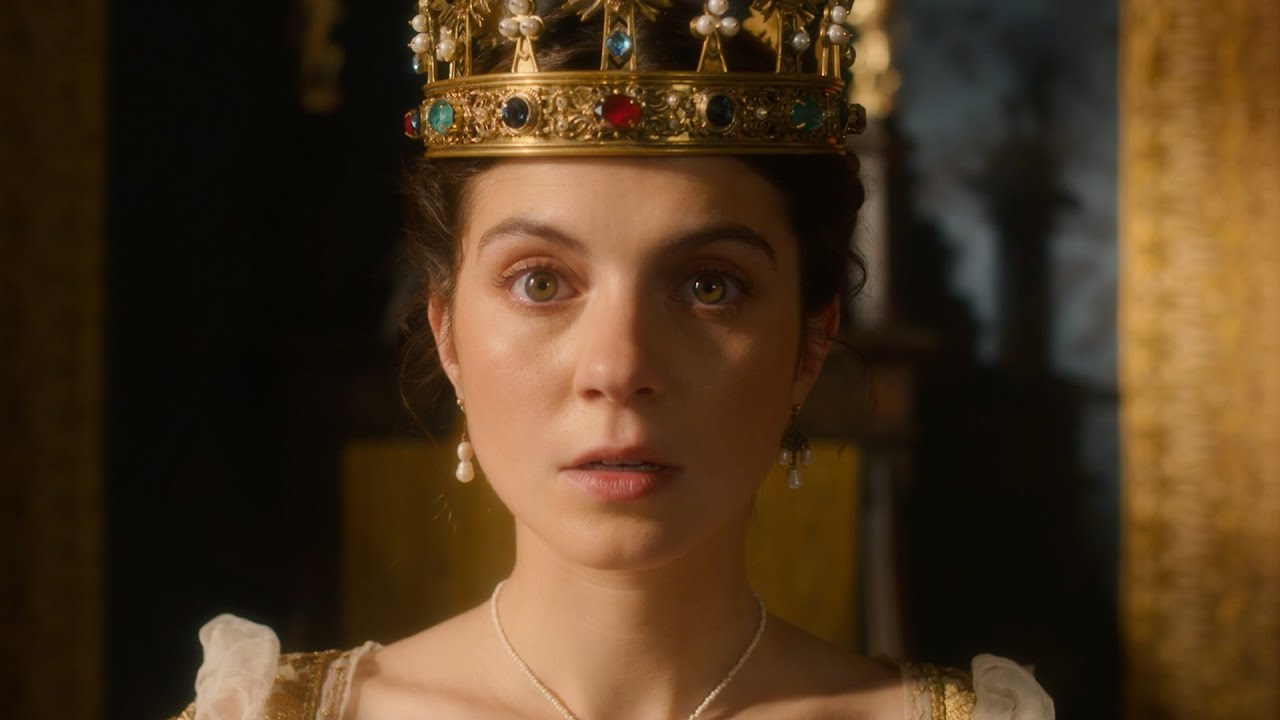
'MY LADY JANE' IS NOT QUITE 'BRIDGERTON', BUT NOT QUITE 'THE GREAT' EITHER
I always find it funny when streaming companies compete with each other on niche genres; Hulu has The Great, Netflix has Bridgerton, and Prime Video has plucked out My Lady Jane to compete with the modern twist on historical period dramas. Unfortunately, unlike the mentioned series, My Lady Jane is lighter, sillier, and less substantive. It’s a good binge product for some chapters, but it’s hardly a memorable piece of work.
That does not mean that the series leaves you entirely unsatisfied. In fact, Lady Jane Grey gets a reimagining of her history, which is a promising concept in itself. Based on the 2016 series of novels by Brodi Ashton, Cyntia Hand, and Jodi Meadows, My Lady Jane follows the titular character in the 16th century: this time, the “Nine Days’ Queen” avoids the ax and has a chance at life, with plenty of controversy and romance along the way.
Too Hard In Being Different
The team behind the series has patently analyzed what works in the comedy history genre, but it feels like they have missed the mark slightly.
To begin with, the narrator is a little dry, and the script in the opening episodes lays on the modern outlook far too thick. When you have Lady Jane repeating the word “shag” a few times to her maid Suzanne, it feels far too obvious. It feels like the writers wanted the audience to understand that this is going to be a silly alternative history arc where ladies were equivalent to women on a night out in the town.
But there’s no shock factor at all because it feels like the characters are far too aware that they are speaking out of turn in their time period. That responsibility lies heavily with the script.
And before I get accused of being overly nit-picky, my angle is not that it’s not funny but that others have done it better. The Great, for example, effortlessly mixed historical expectations with modern-day sensibilities. It felt like the historical characters were meant to be there during that time and were not washed up and spit out by a time machine.
But it does improve from here despite my awareness that My Lady Jane was trying too hard. Emil Bader embraces the alternative Lady Jane Grey well, honing in on the point that she was a woman ahead of her time: a smart person with special nous for herbs and medicine. The premise moves to the expectations that she should marry to save the financial outcomes of her family, while on the sidelines, King Edwards (Jordan Peters) has to stave off his close acquaintances, who are comically and obviously trying to poison him, as there is a deep interest of who is going to be his next heir.
(L-R) Emily Bader as Lady Jane Grey, Robyn Betteridge as Margaret Grey, Isabella Brownson as Katherine Grey and Anna Chancellor as Frances Grey in ‘My Lady Jane’ (Credit – Prime Video)
From Fantasy Beasts to Shoddy Costumes
The period comedy-drama eventually warmed up on me at the halfway mark. I became invested in the outcomes. However, there is an added element to this series mainly due to the ambition of the writers of the novels.
In this alternative universe, there are beings called Ethians: people who can transform into animals whenever they please. Historical context is added that the Royal Court deemed Ethians to be servants of Satan and must be killed at will. This variable in the universe does work, even if it is lazily put in with shoddy special effects. They’ve replaced witches with fantasy beasts, basically.
The same can be said of the costume designs, too. I wonder if, because there was no inclination to make this a serious story, they applied the same methodology to the costumes, too. Everything feels hastily rushed, even the makeup.
The Romantic Interest Is Its Saving Grace
What saves My Lady Jane is the romantic interest. The titular character is matched to marry Lord Guildford Dudley, to the dismay of Jane, who has only heard terrible rumors about him. However, it turns out that when she meets him, she is weakened by her attraction to him. The feminist nature of Lady Jane is challenged as she has to battle with her desire to be “free and single” rather than a wife in service to a husband.
But the chemistry between the two characters — played by Emily Bader and Edward Bluemel — works, so they at least got that right.
The only problem here is that I’m not too sure My Lady Jane works in the long run. I am unaware of how the novel series plays out, but the efforts behind the series do not land — from costumes to script to special effects and general chemistry, I cannot imagine this being a binge obsession.
Read More: My Lady Jane Ending Explained
2024-06-26T16:00:43Z dg43tfdfdgfd